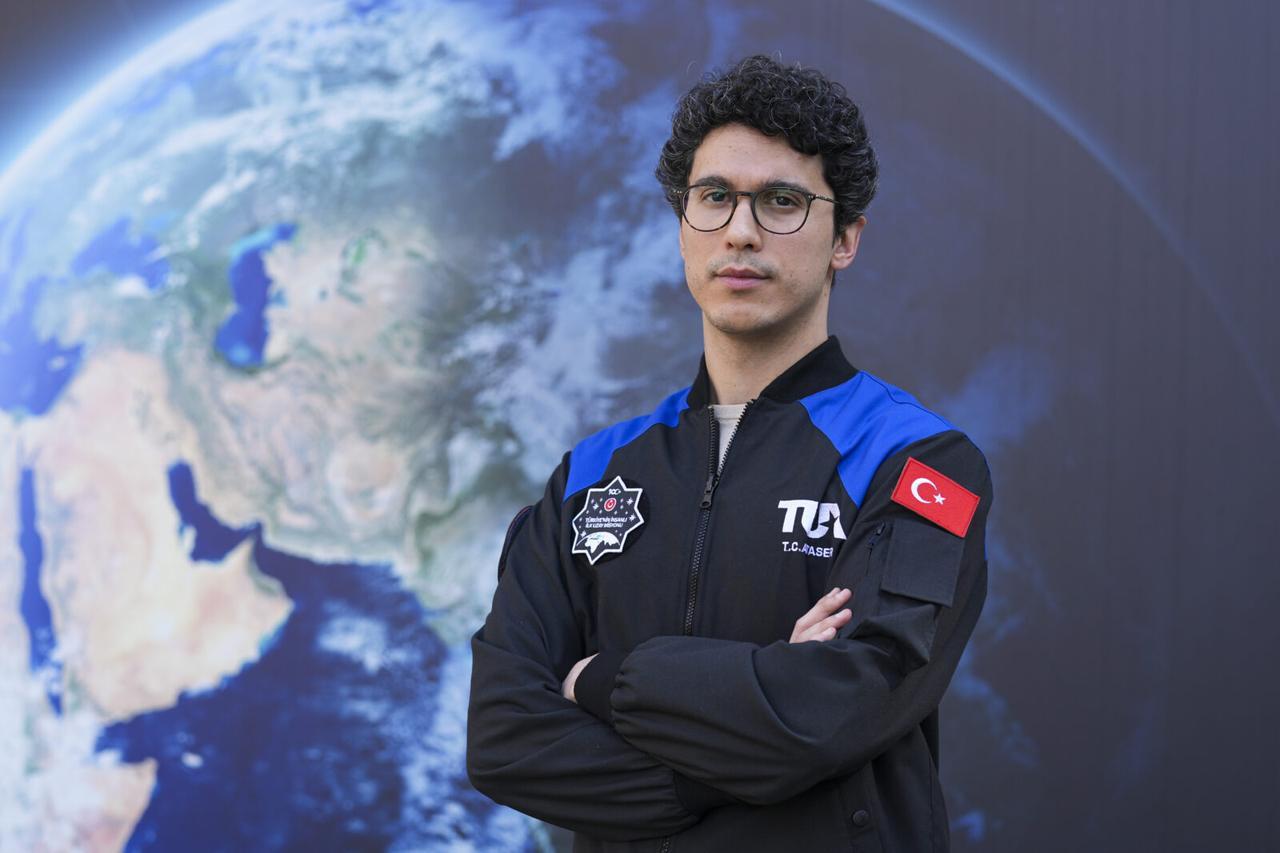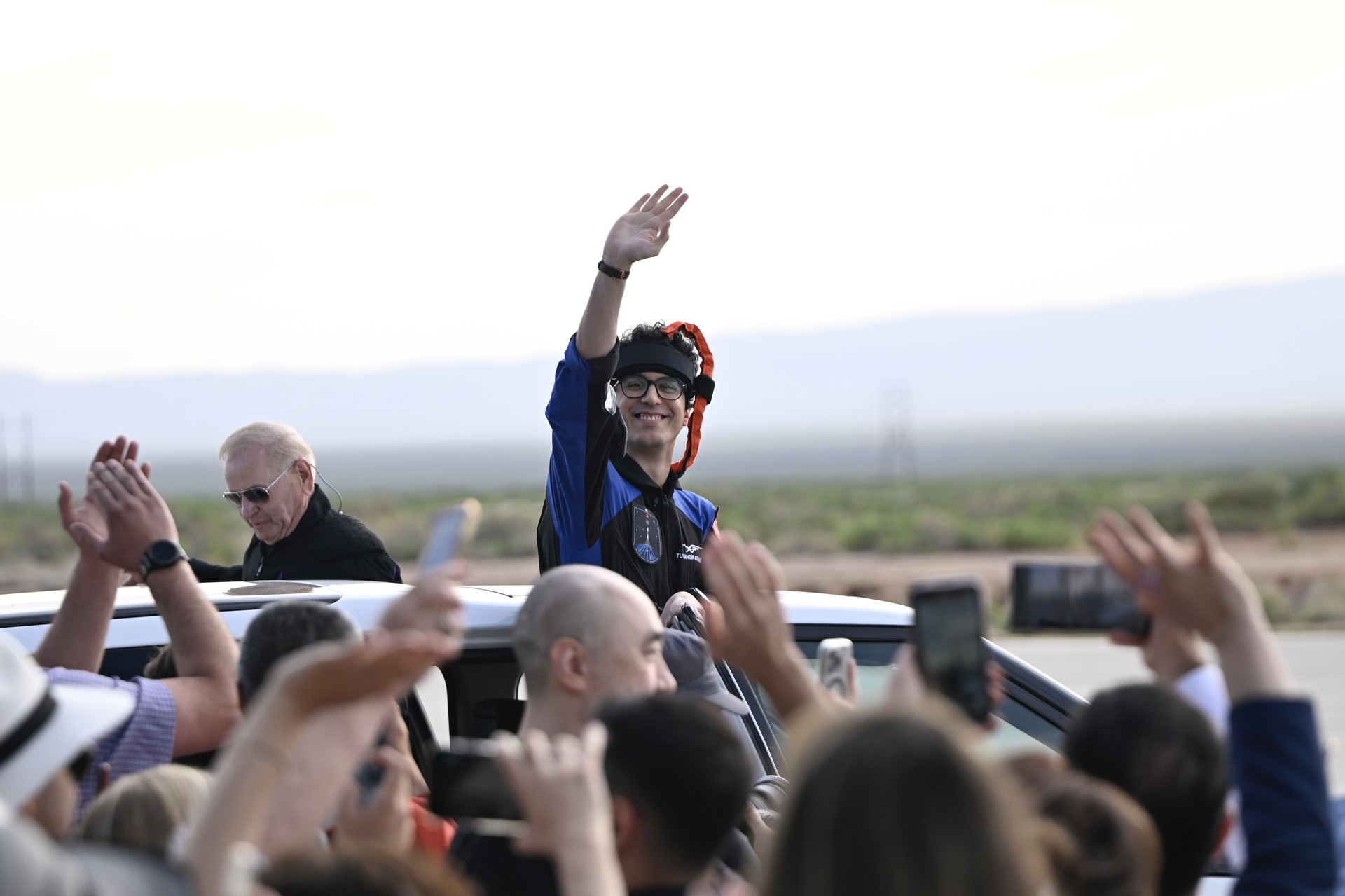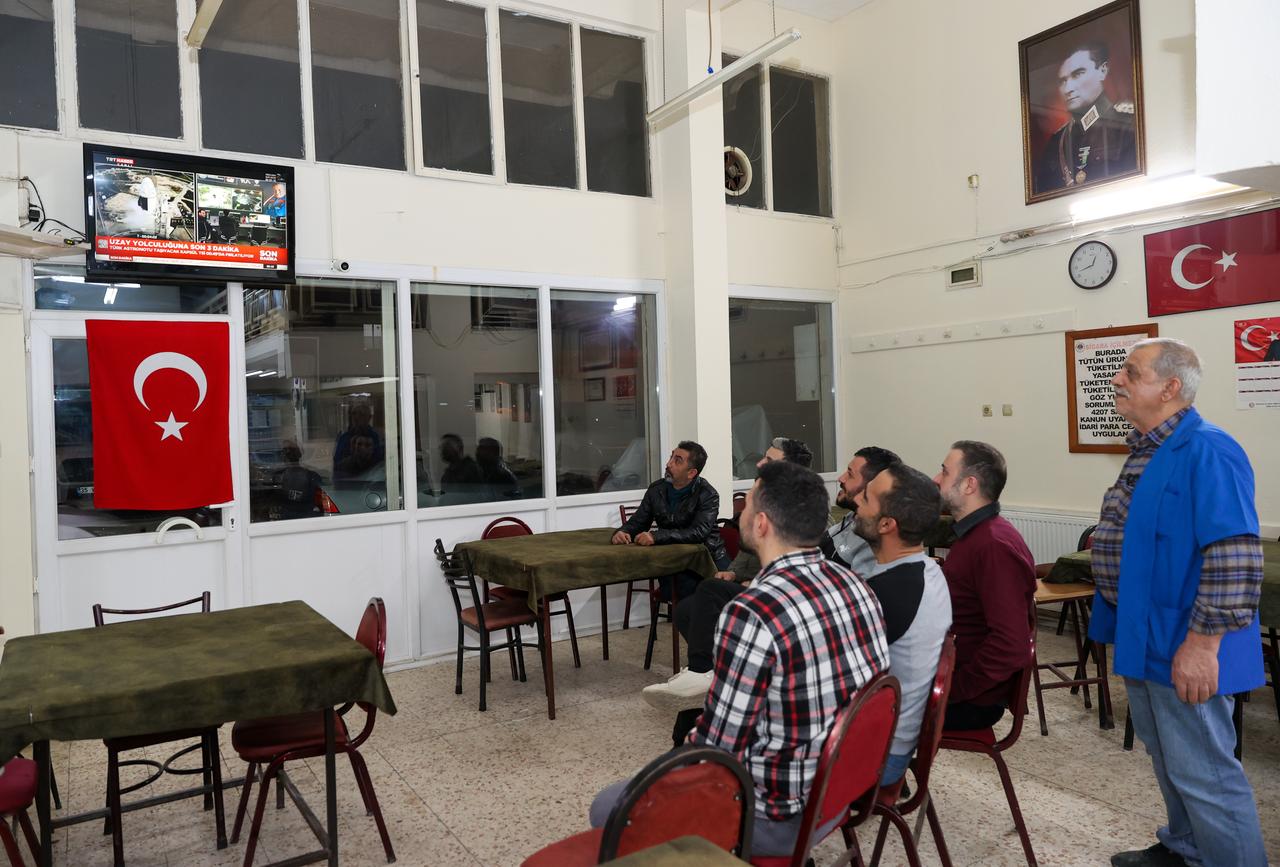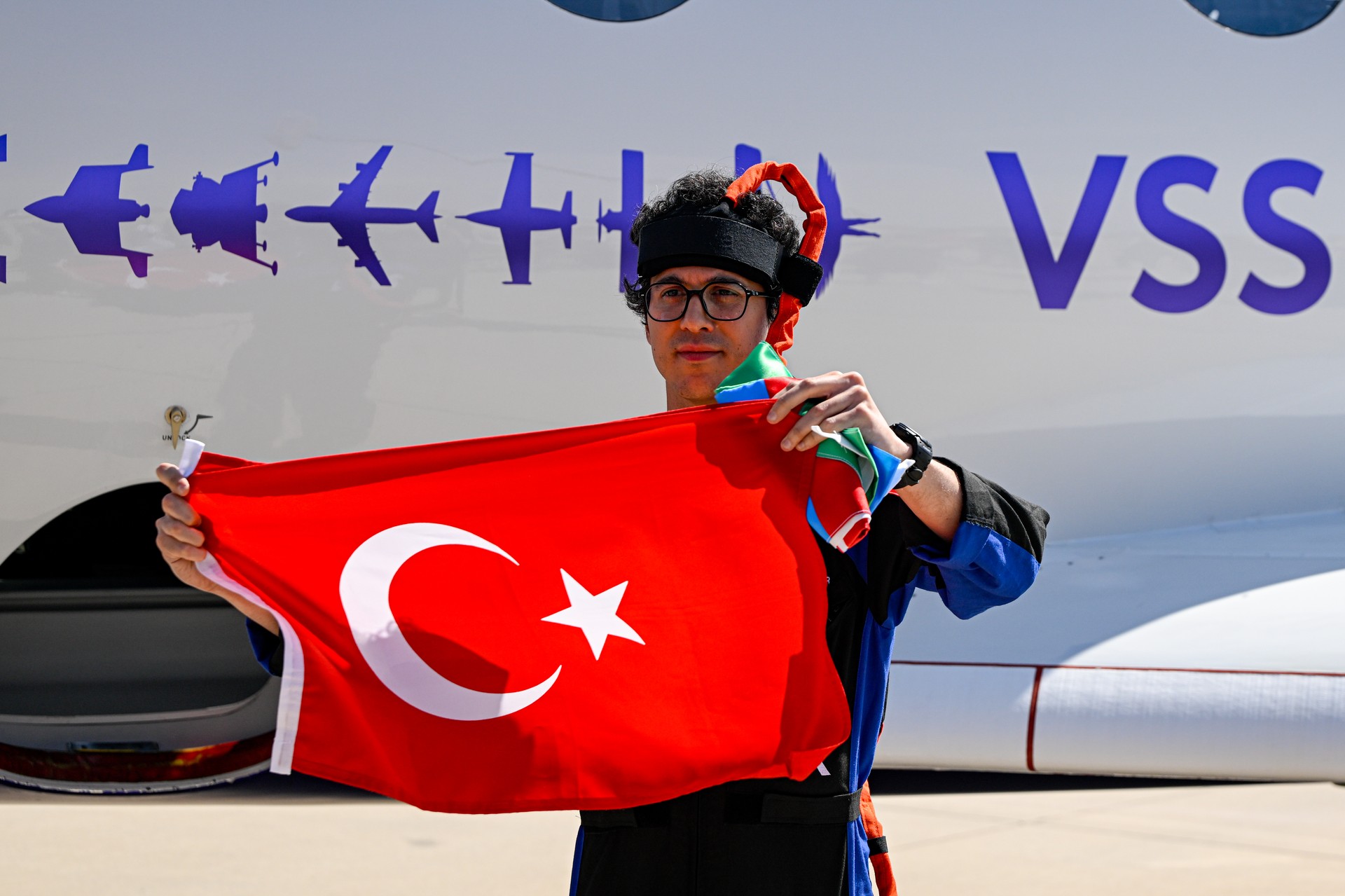
Turkish astronaut Tuva Cihangir Atasever evaluated his past year of space research activities, emphasizing efforts to build a sustainable space ecosystem that exceeds world standards.
"We are working to build a space ecosystem that will form the foundation of a Türkiye that has surpassed world standards in the space field," Atasever told Anadolu Agency.
Atasever became Türkiye's second astronaut on June 8, 2024, following astronaut Alper Gezeravci under the National Space Program's "Turkish Astronaut and Science Mission" framework.

Atasever conducted 7 experiments during his "suborbital research flight" aboard Virgin Galactic's "VSS Unity" spacecraft from the Spaceport facility in New Mexico, United States.
Atasever told AA that over the past year, they have conducted social awareness activities about the scientific experiments performed in space and their potential future evolution. During this period, they met with students from elementary school to university level in different provinces of Türkiye through more than 110 programs.
Atasever said they experienced an exciting year full of travel, explaining the importance of space studies to different segments of society, and will continue meeting with students.

Atasever confirmed that experiments were successfully conducted in both space missions, stating: "The results of Alper Gezeravci's 13 experiments at the International Space Station and my 7 experiments are still being examined by our professors and researchers. I estimate that the results of these experiments will be shared with the public soon."
"What is important in the total of 20 experiments we conducted in the space environment is being able to transfer the technical and operational knowledge we gained here to more ambitious microgravity experiments we will conduct in the future. At this point, we definitely need a sustainable microgravity research program in the coming years to get a return on our investments," he added.

Atasever emphasized the importance of connections between academia and the private sector regarding space awareness, stating that a strong space ecosystem is based on these foundations.
Noting that they inspire young people about microgravity research through seminars, Atasever made the following assessment: "We need to have built a sustainable space ecosystem where young people who want to become 'astronauts' or 'scientists' like us can continue their work after graduation."
"For this reason, we are currently striving to prepare an environment that can meet the excitement of our young people with both sustainable microgravity research and human space programs that Türkiye will conduct. We are working to build a space ecosystem that will form the foundation of a Türkiye that has surpassed world standards in the space field," he stated.
Atasever conducted his space mission as part of the National Space Program's Turkish Astronaut and Science Mission, becoming the second Turkish astronaut to travel to space after Alper Gezeravci.
The astronaut indicated that work continues on developing both sustainable microgravity research programs and human space programs to provide opportunities for young people interested in space careers.